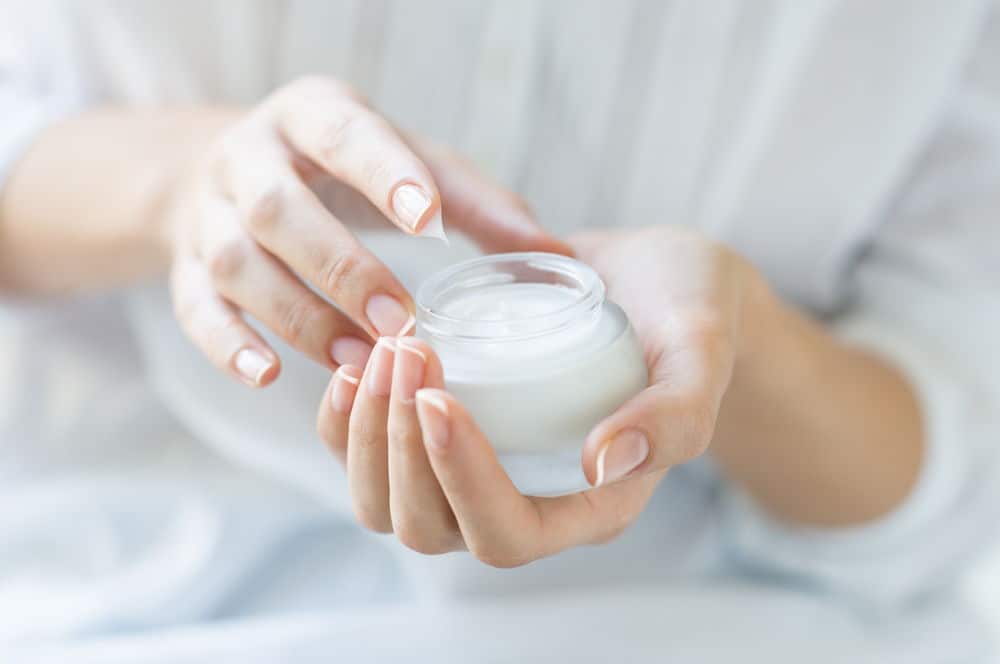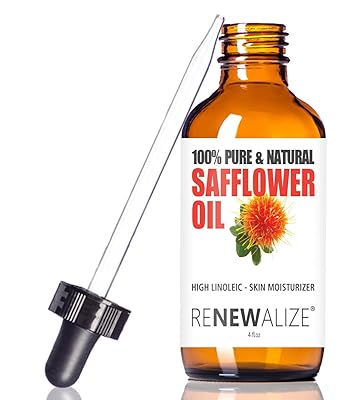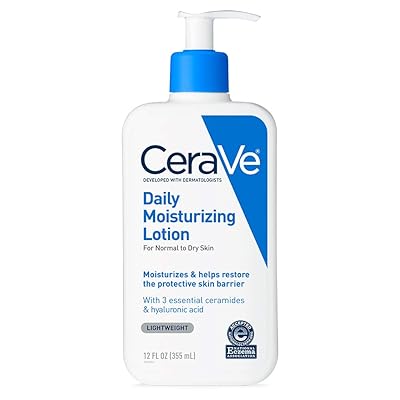
We all want that supple, healthy skin that we see all too often on the screen and on magazines. Unfortunately for most of us, we fall on the ends of the spectrum with either oily skin, which is prone to breakouts, or dry skin, which can be lackluster and prone to early aging. Not to mention those with sensitive skin, which can result in unsightly and uncomfortable reactions if you so much as touch the wrong product.
Moisturizing is an essential part of every skin care regimen but choosing the right moisturizer can be tricky. Fortunately, the newer formulas tend to not clog pores and cause breakouts especially in those with oily or combination skin. However, choosing the best non comedogenic moisturizers can still be a feat in itself, considering the many options available in the market.
This guide will walk you through what you need to consider in choosing the best non comedogenic moisturizer for your skin type as well as the best products in the market.
Best Non Comedogenic Moisturizers
1. Olay Age-Defying Classic Daily Renewal Moisturizer Cream (Pack of 3)

Ingredients: Water, PPG-15 Stearyl Ether, Glycerin, Stearyl Alcohol, Salicylic Acid, Cetyl Alcohol, Aloe Barbadensis Leaf Extract, Acrylamide/Sodium Acryloyldimethyltaurate Copolymer, Dimethicone, Steareth-21, C13-14 Isoparaffin, Cyclopentasiloxane, Laureth-7, Dimethiconol, Tocopheryl Acetate, Steareth-2, Disodium EDTA, Fragrance.
Skin Type: Mature
This cream formulation from Olay not only provides serious moisture but also has anti-aging benefits. It certainly has quite the following because it can reduce fine lines and wrinkles as well as renew the skin surface.
This product can also be used for almost all skin types and is non comedogenic, which is a relief for those with oily or combination skin.
PROS
- Suitable for all skin types
- Non comedogenic
- Anti-aging effects
- Non-greasy and absorbs quickly
- Restores moisture
CONS
- Slow anti-aging effects
2. Renewalize Safflower Oil

Ingredients: Oleic acid, Vitamin-e, Linoleic acid
Skin Type: Acne prone, oily, mature, sensitive
Safflower oil is one of those naturally occurring oils that contain the highest levels of linoleic acid, which is the component in sebum that can help prevent breakouts.
Pure safflower oil, such as this product, has a comedogenic rating of zero, which means that it does not clog the pores and prevents breakouts. This product is suitable for all skin types but is particularly great for those with oily or combination skin, who can benefit the most from the linoleic acid boost.
PROS
- Comedogenic rating of zero
- Can be used as moisturizer, makeup remover, hair conditioner
- Contains high levels of vitamin E
- Organic
- Comes with free facial sponge
- Has a 1-year money back guarantee
3. CeraVe Moisturizing Lotion

Ingredients: Aqua / Water / Eau,glycerin,caprylic/capric Triglyceride,cetearyl Alcohol,cetyl Alcohol,potassium Phosphateceramide Npceramide Ap,ceramide Eop,carbomer,dimethicone,ceteareth-20,behentrimonium Methosulfate,methylparaben,sodium Lauroylactylate,cholesterol, Disodium Edta,dipotassium Phosphate,propylparaben,hydrolyzed Hyaluronic Acid,phytosphingosine,xanthan Gum,polysorbate 20, Polyglyceryl-3 Diisostearate
Skin Type: Sensitive
Lotions are some of the lightest formulations when it comes to moisturizers due to their high water content and this one is no exception. CeraVe Moisturizing Lotion contains ceramides which can replenish the skin’s natural barrier as well as hyaluronic acid to help the skin lock in its natural moisture.
This product is geared towards those with normal and dry skin. It is also fragrance-free, hypoallergenic and non-irritating, which also makes it suitable for those with sensitive skin. Those with oily skin will also be glad to know that aside from the lightweight formula, it is also non comedogenic and will not clog your pores and cause breakouts.
PROS
- Lightweight formula
- Fragrance-free, non-irritating, hypoallergenic
- Contains hyaluronic acid to lock in moisture
- Non comedogenic
- Recommended by some dermatologists
CONS
- Moisturizing effects are good, not particularly stellar
- Contains parabens
- More effective as a body lotion
4. NatureFace Organic Facial Moisturizer

Ingredients: Sunflower oil, Shea butter, Vitamin-e, Vitamin-c, Aloe vera, Green tea
Skin Type: Acne prone,oily,mature,sensitive,all skin types
If you are looking for an organic moisturizer that has serious benefits, you might want to check out this facial moisturizer by NatureFace. Although it is a bit pricier than most moisturizers in the market, this one is packed with natural ingredients that supports the body’s production of collagen, which keeps the skin smooth, supple, and wrinkle-free.
This facial moisturizer is lightweight and absorbs quickly. It contains a host of antioxidants like vitamin C to combat damage by free radicals and promote skin healing and repair. It also contains natural moisturizers such as aloe vera and shea butter to ensure that your skin gets all the hydration it needs and locks it in for good measure.
It is fragrance-free and paraben-free, which makes it a great choice for those with dry and sensitive skin. Although it is most ideal for those with normal to dry skin, people with oily or combination skin will be happy to know that it is non comedogenic, too.
PROS
- Fragrance-free, paraben-free
- Organic
- Contains antioxidants
- Absorbs quickly
- Has anti-aging effects
- Great moisturizing effects
- Lightweight formula
- Non comedogenic
- Application lid is sanitary
CONS
- Pricey
5. Vanicream Moisturizing Skin Cream for Sensitive Skin

Ingredients: Purified water, petrolatum, sorbitol, cetearyl alcohol, propylene glycol, ceteareth-20, simethicone, glyceryl stearate, PEG-30 stearate, sorbic acid, BHT
Skin Type: Sensitive
Those with sensitive skin and other skin conditions such as eczema, psoriasis, and rosacea can rejoice because this cream was formulated with their needs specifically in mind.
It is a thick, moisturizing cream that can soothe dry, itchy, flaky skin. It is dermatologist-tested for the most sensitive skin and is especially for those with special skin conditions that suffer from interruptions in the skin’s normal barrier function.
This moisturizer is also kid-friendly and comes in a pump bottle for easy dispensing.
PROS
- Awarded the Seal of Acceptance by National Eczema Association with rating of 5/5 stars
- Fragrance-free, paraben-free, free of dyes and lanolin
- Recommended and tested by dermatologists
- Ideal for sensitive skin and those with skin conditions like psoriasis, eczema, ichthyosis, and winter itch
- Non comedogenic
- Comes in pump bottle
CONS
- Formula is too thick to use as facial moisturizer
- Contains alcohol and may sting when applied to broken skin
Considerations in Choosing Moisturizers
Buying a moisturizer is no mean feat. It seems really easy at first but once you wander down the cosmetic aisle and realize that there is a dizzying array of products, all with their touted benefits and colorful packaging, you will find it easier to get lost.
Not all moisturizers are created equal and not all their benefits are for your specific needs, which is why you must carefully assess each one to determine if it is truly the best moisturizer for you.
Different Types of Skin
Rule Number One: Different types of skin will always require a different type of product. That is just how unique we are and what works on your best friend or third-degree cousin, twice removed, will not necessarily be the best choice for you.
First step in any skincare regimen is to determine the type of skin you have. Below are the basic skin types to consider when selecting a cosmetic or any product for your skin.
Oily Skin
People with oily skin naturally produce a lot of sebum, or the oil that is secreted by the sebaceous glands. This oil is the body’s natural way to keep the skin moisturized and provide a barrier that can deter bacteria and pollutants from harming the skin. Unfortunately, this can also trap cellular debris and dust in the pores, causing comedones to form. Left on its own, this can cause breakouts and other unsightly skin blemishes.
Those with oily skin will have more visible pores than those with other skin types, as well.
These skin types will benefit from lighter, oil-free, and non comedogenic formulations.
Combination Skin
Combination skin is used to describe the skin type wherein there are areas where the skin is dry or normal, mostly in the cheeks, as well as oily areas, usually on the forehead and chin. This presents a different challenge in skincare because the oily areas tend to form comedones easily while the dry or normal areas will need more moisture locked in.
As with those with oily skin, pores will be more visible in the oilier areas and will need a lighter formulation that will not bog down the skin and clog the pores.
Normal Skin
If you have normal skin, congratulations! You have struck the fine balance between the sufficient moisture of oily skin as well as the decreased possibility of clogged pores and comedones of those with dry skin. Pores are not so visible in your skin type.
Still, you will need a moisturizer to keep your skin hydrated. Most products for normal skin will contain lightweight oils to keep the skin supple. Go for formulations that are non-greasy and light and you’ll be golden.
Dry Skin
The opposite of the oily skin in the spectrum, dry skin is another problem all its own and needs moisturizers more than any other skin type. Those with dry skin may not deal with unsightly pores and comedones as much as those with oily skin do but their skin can be dull and lackluster.
You might have heard that this skin type is more prone to develop wrinkles earlier than those with oily skin and it that is true because dry skin tends to be less supple and elastic, which encourages the development of fine lines.
If you have dry skin, you will need to moisturize twice a day to keep your skin hydrated and supple. Firstly, you will have to provide moisture to your dehydrated cells and then lock in that moisture.
Formulations for this skin type are usually heavier and can be comedogenic, especially for those with oily skin.
Sensitive Skin
Sensitive skin tends to be dry and rough. While sometimes, it can be grouped together with dry skin, it presents another problem of its own in that this skin type often breaks out when moisturizers with certain substances, especially fragrances, are used. Forego the moisturizer and sensitive skin will turn out dry, scratchy, and itchy with breaks in the barrier function of the skin.
For people with sensitive skin, it is imperative to use a moisturizer to maintain the integrity of the skin, albeit one that is fragrance-free and hypoallergenic to avoid eliciting those nasty reactions.
Age
The more you age, the more your skin needs hydration. This might not be so evident when you are in your 20’s and have recently won the battle against adolescent acne but those fine lines will start emerging by the time you are 30.

By then, you should not only invest in a plain moisturizer but one with sunscreen as well as antioxidants to reduce and repair the damage wrought by years of exposure to ultraviolet rays.
Climate and The Environment
Different climates and environments require adjustments to your skincare routine and moisturizers are not exempt from this. Tailor your moisturizers based on the climate accordingly and reap the rewards of skin that is healthy and happy.
- Dry climates can take a toll on the skin and makes moisturizers all the more necessary in your skincare regimen. For this type of climate, lock in the moisture with an oil-based moisturizer.
- Humid climates can do quite a number on those with oily or combination skin as the high water content in the air plus the increased sebum production is a perfect recipe for comedones or even breakouts. Should you then skip the moisturizer? Of course not! However, you should use a non comedogenic moisturizer that will not contribute to pore clogging.
- Cold climates are just like dry climates in that they tend to dry the skin, which makes moisturizers a must. Give your dehydrated cells all the moisture they need then lock it in for good measure. Moisturizers with shea or cocoa butter are especially good for your skin in such conditions.
- Windy climates are my least favorite weather conditions when it comes to my skin. The winds are quite harsh on the skin, leaving it not only dry but with awful red patches. What is more irritating is the drying on the lips, which can cause them to crack and bleed. In this kind of environment, layer on the moisturizer and lock it all in your skin with a nice balm. Don’t forget the lip balm, too!
- Hot climates combined with heavy, pore-clogging moisturizers make an awful combination that will result in breakouts. Use a lighter, oil-free, non comedogenic moisturizer instead with good SPF coverage to keep those pesky ultraviolet rays from dealing damage on your skin. Covering up with a wide-brimmed hat is also a good idea!
Types of Moisturizers
Just as there are different types of skin with different needs, there are also different moisturizers to answer those needs. Keep these types of moisturizers in mind when you go shopping for a new product.
Ointments
For those with dry, itchy skin, you might want to go with ointments as they have the ability to lock moisture in. They are a thicker formulation and must be avoided by those with oily or combination skin.
Creams
They are thicker than lotions but thinner than ointments. They are very good at keeping your skin hydrated and are the best choice for those with normal skin. Night creams are thicker than most moisturizers for daytime but are quite big on hydration. Put some on before you sleep and let your skin enjoy the combined benefits of nourishment and healing with lots of beauty sleep.
Lotions
Lotions are the thinnest formulation and contain a great deal of water, which makes them perfect for those with oily or combination skin.
Moisturizer Ingredients
The first five ingredients that are listed on the label of your moisturizer generally make up most of your moisturizer so read the fine print carefully.
Take note of the following ingredients and use them accordingly:
- Fragrances and perfumes, especially if you have sensitive skin.
- Urea and lactic acid can also aggravate skin irritations, so avoid them if you have sensitive skin. They are, however, great for dry skin.
- Heavy oils and waxes, like shea butter, mineral oil, and lanolin, if you have oily or combination skin as they can cause pore clogging and breakouts.
- Acids are not all that great if you have dry or sensitive skin because they could penetrate your skin and cause damage. Look out for alpha-hydroxy acid, retinoic acid, or salicylic acid.
- Steroids are mostly used by those with those with itchy or sensitive skin but limit their use to two weeks maximum unless your doctor recommends it. While it may work wonderfully for some time, they eventually make your skin quite thin and susceptible to different problems.
Conclusion
Olay Age-Defying Classic Daily Renewal Cream hit the spot when they made it suitable for all skin types. The lightweight formula as well as the fact that it absorbs quickly is great news for those with particularly oily skin, as most moisturizers will leave us feeling icky and greasy. Not only that but it is non comedogenic and also has anti-aging effects, which are an added boost for those of us in our 30s and older. Choosing a moisturizer can be tricky business but we hope we were able to help you with this guide. Do you know of other non comedogenic moisturizers that you want added to this list? Shoot us with a comment below and don’t forget to share this article with your family and friends

Hi Everyone, BeYoungAholic’s aim is to help women who have lost their self-confidence because of the way they look. We will provide you tips and bits of advice on how to take care of yourself and maintain your youthful look. So, Enjoy the blog!
